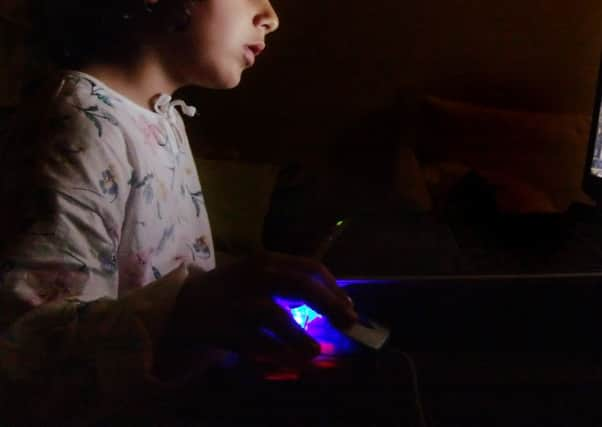Teenagers warned over growing trend for sexting


The advice comes in response to the “growing trend” of children sharing naked, or partially naked images of themselves.
Warwickshire Police has launched the Cyber Smart campaign to focus on teenagers’ use of social media and ‘sexting’ - sending or sharing explicit or naked pictures of themselves to others.
Advertisement
Hide AdAdvertisement
Hide AdIt also highlights dangers young people could face if they are found with sexually explicit images of children on their phones or computers.
A police spokesperson said: “There is a growing trend among children and young people to take indecent photographs of themselves, and sometimes even of friends, to send on to each other or post in public places.
“This could be on the internet, or by sending the photos to each other on their mobile phones.
“Many young people see it as harmless fun, often thinking it is a good way to show someone they like and trust them.
Advertisement
Hide AdAdvertisement
Hide Ad“Others may see it as a modern way to push boundaries and experiment with risk taking.
“Remember even if you think you are having a private conversation; once you have hit send, where those words or images end up will be out of your hands.
“Nudes, sexts, fanpics, whatever you call them, sending private pictures of yourself to someone else is never a good idea.
“Whether it’s to your boyfriend or girlfriend or someone you’ve met online, a quick snap can have long-term consequences.”
Advertisement
Hide AdAdvertisement
Hide AdOfficers have also warned of unwitting criminal activity as sharing images could result in investigations into the possession of indecent images of children.
A Warwickshire Police statement read: “If a teenager were to have in their possession an indecent image of another minor aged under 16, they would technically be in possession of an indecent image of a child, which is an offence.
“If someone is prosecuted for these offences, they may be placed on the sex offenders register, potentially for some considerable time.
“Once an image is on the internet, it can be freely copied by anybody.
Advertisement
Hide AdAdvertisement
Hide Ad“Children and young people may not realise that what they are doing is illegal or that it may be potentially harmful to them in the future.”
Parents are advised to warn teenagers of potential dangers, and make them aware that once an image is shared on the internet, they can never get it back.
Advice is to make sure young people are careful not to give out personal information to people they are chatting with online, and to keep social media privacy settings in place.
For help and advice, visit the ThinkuKnow site.